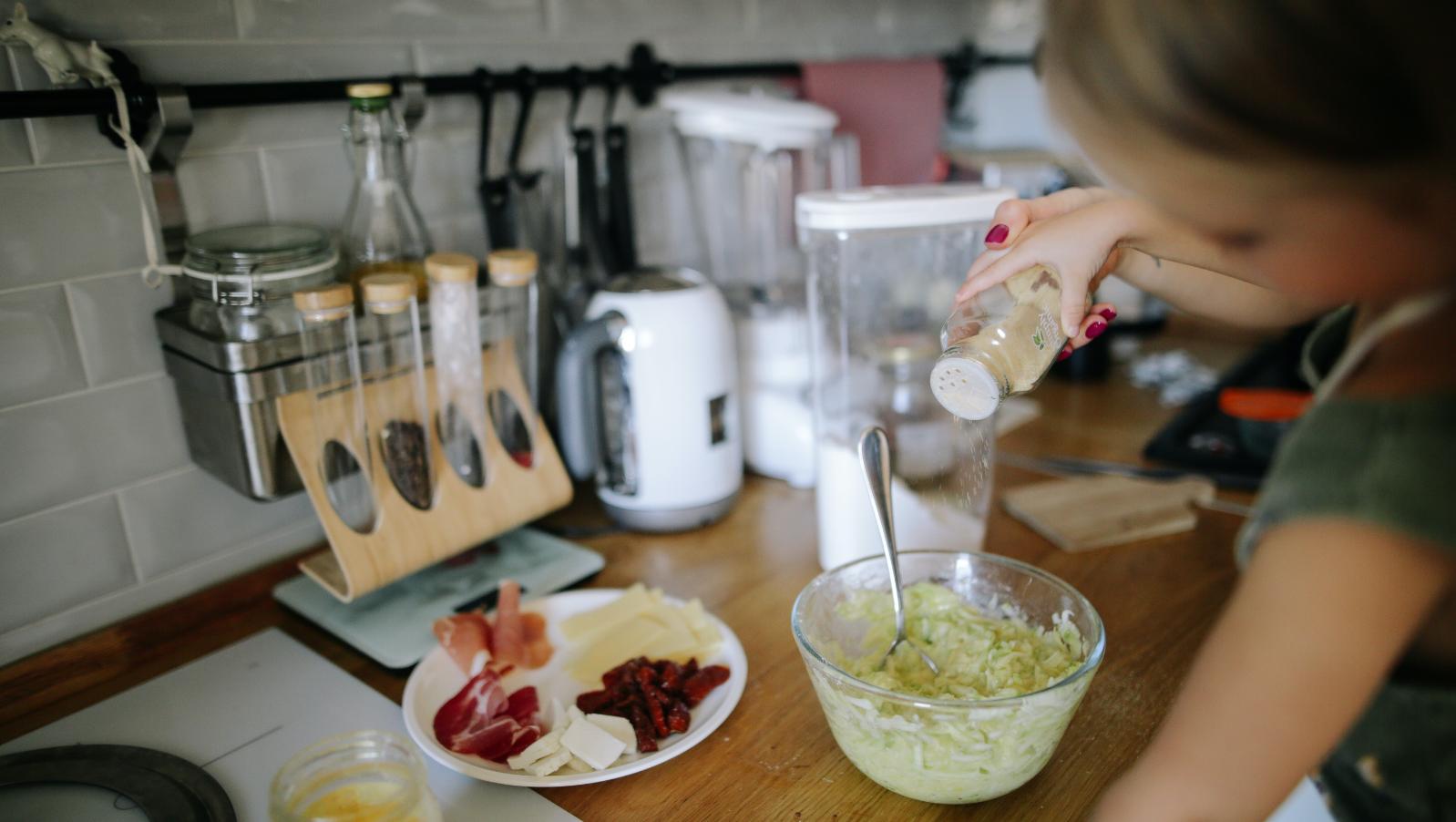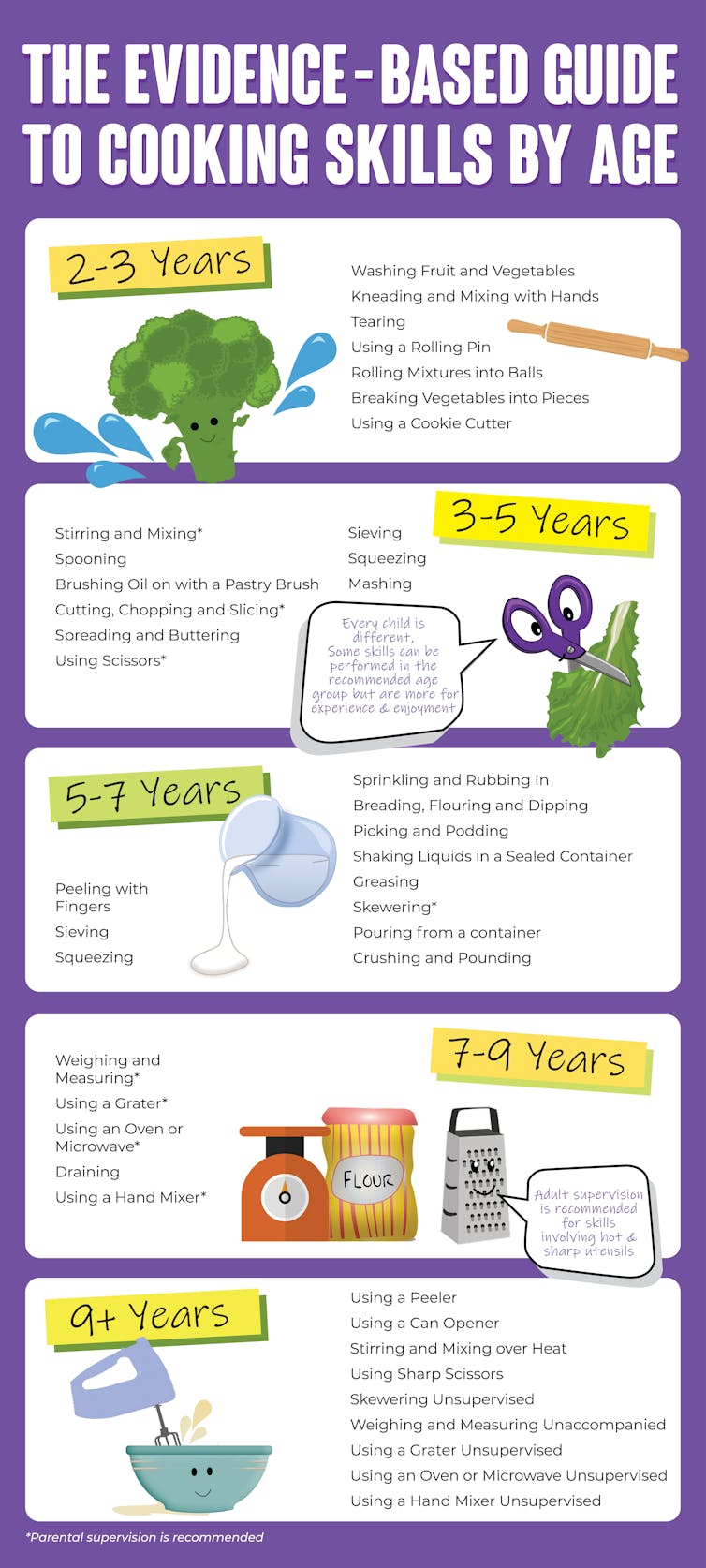Children as young as two can learn to cook
Cooking with young children isn't just playful and fun (and messy!) - it's been proven to help with motor skills, educational outcomes and dietary behaviour in later life. Professor Moira Dean and Dr Fiona Lavelle report

Learning to cook can be hugely valuable for children. It can be used to teach academic subjects such as maths and reading.
Research has shown links between learning cooking skills at younger ages and more positive dietary patterns in adulthood, such as consuming less fried food and takeaways and eating more fruit, as well as having a greater interest in eating healthily.
Children that learn their cooking skills at younger ages retain these skills as adults. What’s more, cooking may help them develop motor skills – the controlled movement and coordination of the limbs and hands.
But parents often worry about the safety of involving their children in the kitchen. To help ease this fear, we have developedage-appropriate recommendations for children by breaking down cooking skills into the developmental skills needed to complete each task.
The importance of risk
While child safety is key, research has shown that some elements of risk are important for a child’s physical and cognitive development. The management of risk, rather than its complete removal, is essential for childrens’ wellbeing. Participating in age-appropriate risk-taking activities helps children develop coping skills for resilience.
In the kitchen, this would mean children taking up some of the tasks likely to strike fear into the hearts of parents – such as chopping with knives or using the oven.
The cooking skills guidelines we developed were based on children’s developmental skills, such as their motor skills, and were reviewed by a range of international experts. And while all children are different, this research – and the infographic below – provides some guidance for parents about the different kitchen activities they could try with their child.

From the age of two years, a child could be rolling mixtures such as cookie dough into balls, although the shape and size may vary and it may be more of a tactile experience in the beginning. They could also help with washing vegetables, an opportunity to expose them to different vegetables and also to teach them the importance of removing dirt from food.
From the age of three – depending on the child – a child should have the capacity to use a knife to perform simple tasks under parental supervision. We suggest starting with a butter knife or one made of plastic and chopping something soft like a banana. It’s all about practising the skills and about building confidence – for both the child and the adult.
Kitchen tasks like these could help children develop their motor skills. Fine motor skills are the coordination and movement of the small muscles in the fingers and hands, while gross motor skills are are the coordination and movement of the larger muscles in the limbs, such as in the arms.
Stirring and mixing require fine motor skills such as a radial palmar grasp – holding an object to the palm with the fingers and thumb. They also involve gross motor skills, such as arm movement and strength. Peeling an orange or skewering chopped pieces of vegetable requires a dynamic quadrupod or tripod grip: fine motor movements using the thumb and two or three fingers, similar to the way one holds a pencil.
The development of motor skills in early life has been shown to predict academic achievement in reading and maths. But research conducted in Ireland in 2015 has suggested that children may not be developing fine motor skills at the expected normal rate. This may be due to an increased use of technology among children, as opposed to traditional activities such as playing with blocks or board games. Cooking could be used as a method to help this development.
Trying all these different skills with children is likely to create a mess in the beginning. But it also provides an opportunity for play and learning – as well as experimenting with new foods and recipes and building good food habits. Including children in cooking tasks will give them invaluable life skills that will enable them to make positive healthy food choices in adulthood.
- This article originally appeared in The Conversation website
